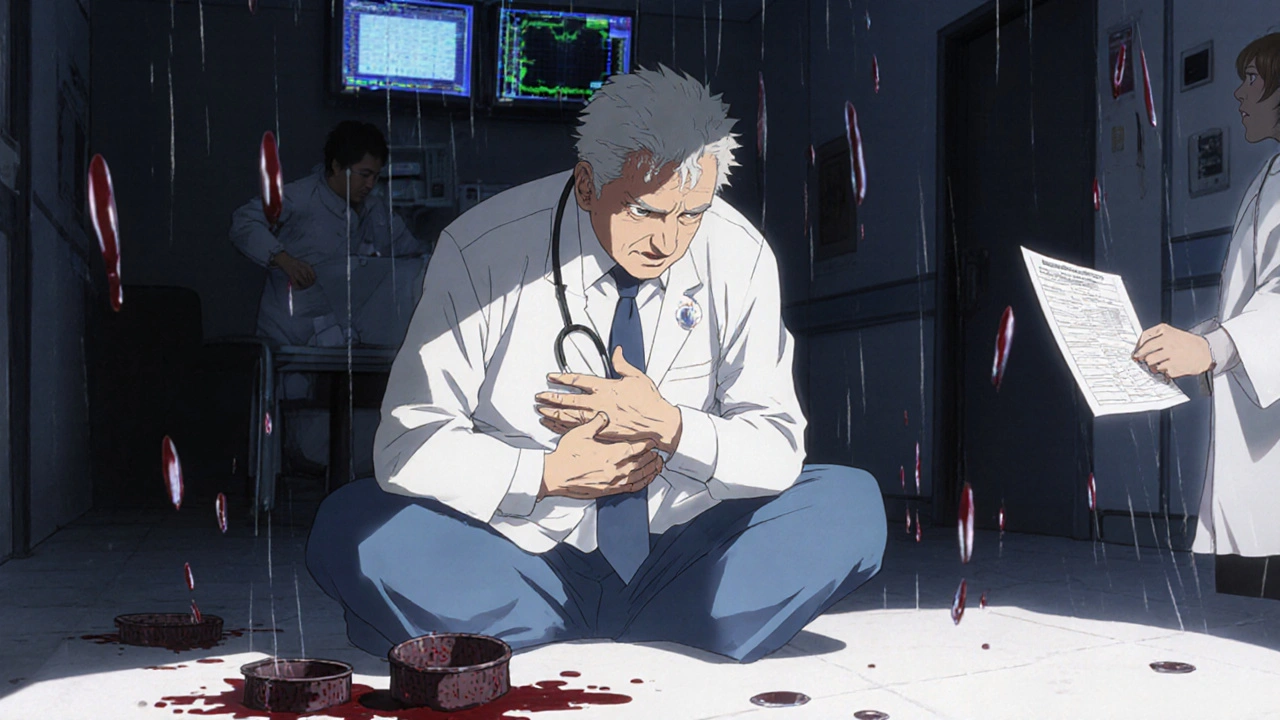Severe Bleeding: Causes, Risks, and What You Need to Know
When you think of severe bleeding, uncontrolled loss of blood that threatens life or requires immediate medical intervention. Also known as hemorrhage, it doesn’t always come from a deep cut—it can happen inside your body from a ruptured blood vessel, a side effect of medication, or an underlying condition you didn’t know you had. This isn’t just a scare tactic. Every year, uncontrolled bleeding sends hundreds of thousands to emergency rooms, and many of those cases are linked to common drugs people take without realizing the risk.
Take aspirin, a widely used pain reliever and blood thinner. It’s in medicine cabinets everywhere, but it reduces your blood’s ability to clot. For someone with high blood pressure or a history of stomach ulcers, even a daily low dose can lead to internal bleeding—sometimes without warning. The same goes for warfarin, a blood thinner often prescribed for atrial fibrillation or deep vein thrombosis. People on these drugs need regular monitoring, but many don’t realize how easily minor injuries or even strong coughs can trigger dangerous bleeding. Then there’s capecitabine, a chemotherapy drug that weakens bone marrow and lowers platelet counts. Patients on this treatment often feel fine until they start bleeding from the gums or notice bruising for no reason. These aren’t rare cases. They’re predictable outcomes of how certain medications interact with your body’s natural clotting system.
Severe bleeding doesn’t always scream for help. Sometimes it whispers. A persistent nosebleed that won’t stop. Dark, tarry stools. Unexplained swelling or pain in your abdomen. A headache that gets worse when you stand up. These aren’t normal. And they’re not always linked to trauma. Many people ignore them because they think, "It’s just a side effect," or "I’ve been on this drug for years." But your body doesn’t care how long you’ve taken it—it only cares if your blood can clot right now.
The posts below cover real cases where bleeding became an emergency because it was misunderstood or overlooked. You’ll find guides on how certain medications like aspirin, capecitabine, and others can silently increase your risk. You’ll see what to watch for, when to act, and how to talk to your doctor before it’s too late. This isn’t about fear. It’s about awareness. Because knowing the signs could mean the difference between a hospital visit and a life saved.
